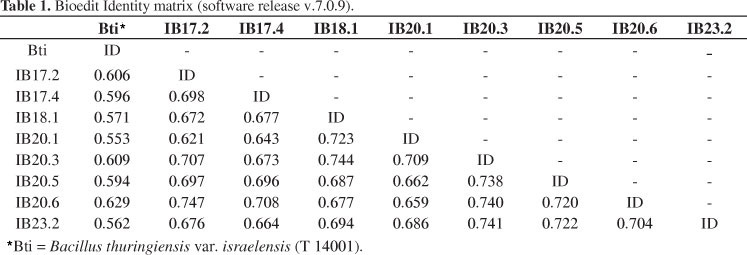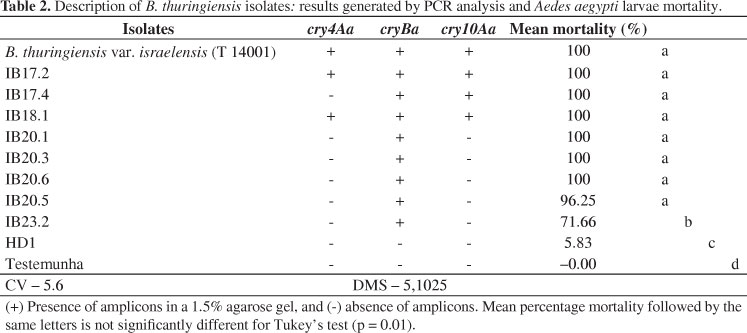The entomophatogenic bacterium Bacillus thuringiensis produces crystal proteins, named Cry proteins which are encoded by the cry genes. This bacterium is used on biological control of important economical pests, as well as in the control of disease´s vectors, such as Aedes aegypti, a mosquito that transmits the dengue viruses. Isolates of this bacterium can be characterized by the content of cry genes and this prediction helps target different insect orders. In this research, we isolated 76 colonies of B. thuringiensis from 30 soil samples that were taken from Ilha Bela (SP, Brazil), a place where simulids are already biologically controlled by B. thuringiensis, to find bacterial isolates that were capable of controlling A. aegypti. The 16S ribosomal subunit genes of the selected isolates were sequenced, and the isolates were molecularly characterized based on their Dipteran-specific cry gene contents. Eight of the 76 isolates (10.52%) contained the cry4Aa, cry4Ba or cry10Aa genes, these isolates were carried out against A. aegypti larvae on bioassay. The presence or absence of specific cry genes was associated with the observed average larval mortalities. From the 76 isolates, seven (9.2%) were potentially able to control A. aegypti larvae. Therefore these are promising isolates for the biological control of A. aegypti larvae.
dengue; biological control; Dipteran; 16S rRNA


